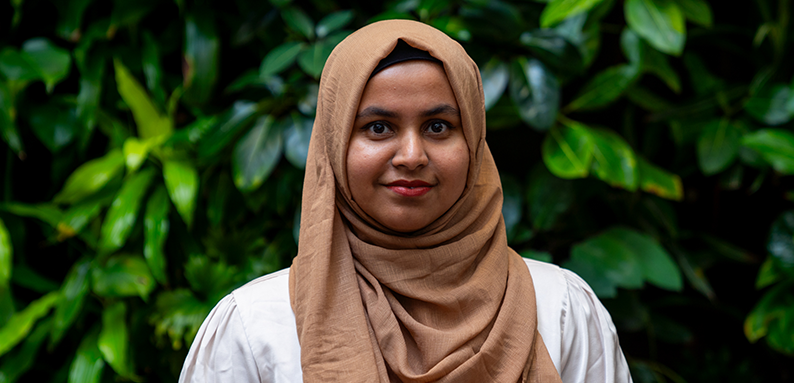Q&A with Sara Khan

"Emergency medical services should not fail because of blackouts or blocked roads. Every patient deserves timely & reliable care, no matter where they live".
Sara Khan
MESc Candidate, Electrical & Computer Engineering
What project are you working on?
I am working on an open-source solar-powered DC nanogrid that can be integrated into electric three-wheelers to transform them into compact ambulances. These ambulances are designed to operate in rural and off-grid areas, where conventional ambulances often cannot go. The nanogrid provides a reliable electricity supply for medical devices such as oxygen concentrators, infusion pumps and patient monitors, ensuring that essential care is available even during power outages.
What problem(s) are you solving?
In many developing regions, access to emergency medical services is limited by two major barriers. First, narrow and unpaved roads make it difficult for standard ambulances to reach patients. Second, frequent power outages mean that even when an ambulance arrives, its equipment may not function. My project tackles both challenges at once, using small electric vehicles that can navigate rural roads and equipping them with a solar-powered DC nanogrid to guarantee uninterrupted power for life-saving care
What brought you to this research?
Growing up in Bangladesh, I often heard stories of people in villages losing loved ones simply because help arrived too late or because medical equipment couldn’t be used during a blackout. One memory that has stayed with me is of a relative living in a village who suffered a heart attack; the ambulance took too long to arrive. That sense of helplessness inspired me to search for solutions that are both practical and sustainable. By combining renewable energy with frugal engineering, I hope to make emergency care more reliable and accessible for communities like the one I came from.

